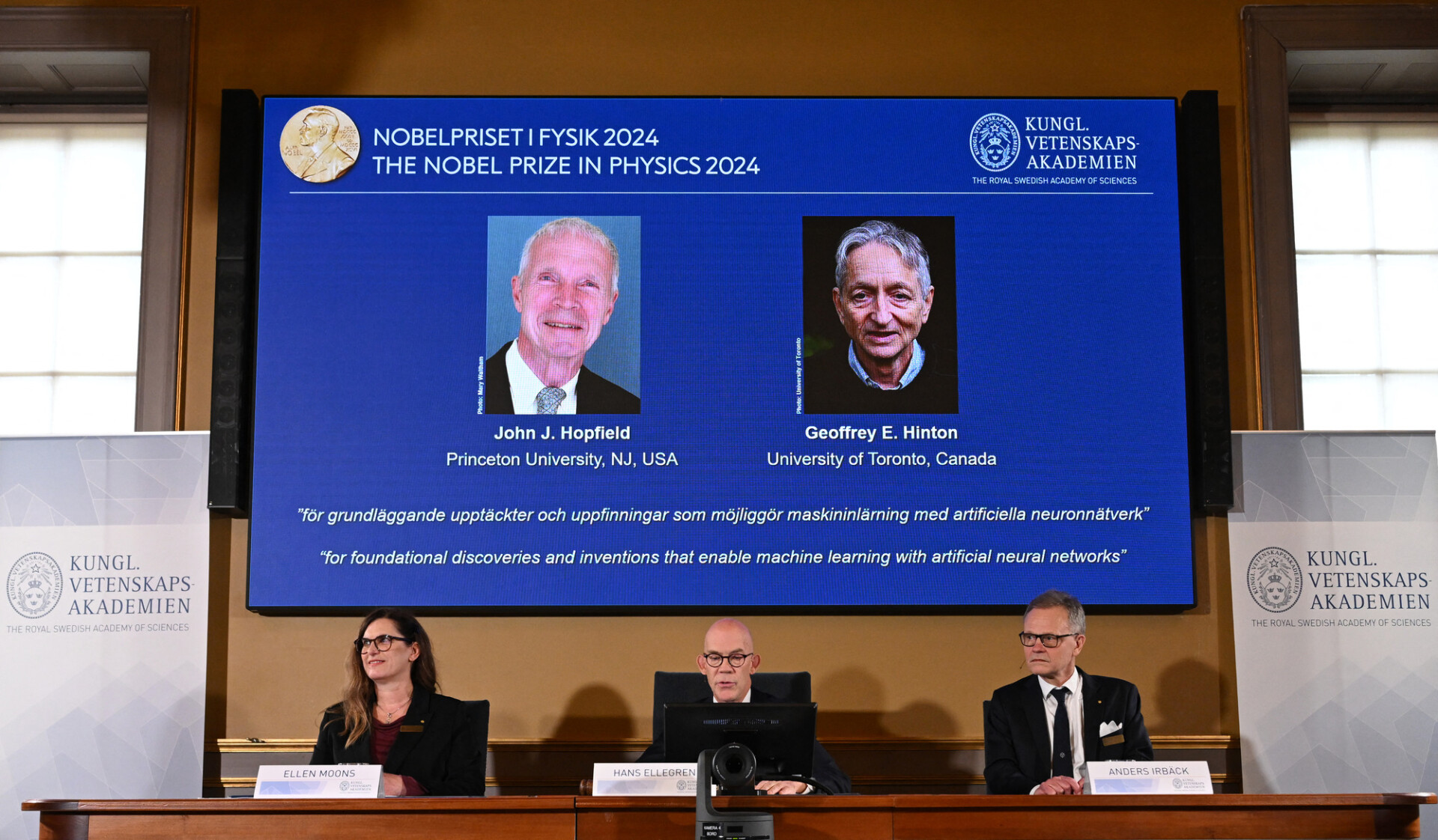You might think that the Nobel Prize for Physics would go to a physicist. Not this, year though. As usual, the prize was shared earlier this week, but both of the winners were computer scientists. It’s as if the Olympic gold for the 100-metre dash had gone to a cyclist.
It should be said that the two laureates, Geoffrey Hinton and John Hopfield, are highly distinguished in their field. However, that field is artificial intelligence (AI), which is not usually regarded as a branch of physics.
So quite a slap in the face for the physicists. But, then, the very next day, came a second slap — this time for the chemists. The Nobel Prize for Chemistry was another shock win for computer science. One of the three winners, David Baker, has a background in biochemistry, but the other two — John Michael Jumper and Demis Hassabis — are leading AI experts.
Does that mean that the great AI-hype wave swept away the Nobels too? Or could it be that the prize-givers have simply relaxed their criteria to recognise genuine scientific achievement?
There’s a precedent for the latter. The third scientific Nobel prize is for Physiology or Medicine. Nevertheless, in 1973 it went to three zoologists: Karl von Frisch, Konrad Lorenz and Nikolaas Tinbergen. It’s a stretch to describe their work on animal behaviour as either physiology or medicine, so clearly allowances were made.
It would seem that similar levels of flexibility were shown this year. There’s no doubt that Hopfield and Hinton are foundational figures in machine learning. They deserve to be honoured, and given there’s no such thing as a Nobel prize for computer science, the physics prize had to do.
As for the chemistry prize, the work that Hassabis and Jumper have done on using AI to predict the structure of proteins is one of the most exciting scientific developments of our time — they too deserve their laurels. And yet a purist might complain that their achievements are a breakthrough for chemists rather than by chemists.
For all the galaxy-brained ingenuity of their AlphaFold software, the knowledge it obtains for us is the product of brute computer processing power, not human inspiration. This is not therefore a Eureka moment, nor the apple falling on Newton’s head, nor Darwin’s voyage on the Beagle, nor Einstein’s musings in the Swiss Patent Office. Rather, this is science by automated pattern recognition — the work of machines immensely more powerful, but infinitely less interesting, than the human mind.
Perhaps that’s the point. This year’s Nobels are a portent that science performed by human brains is hitting natural limits. Thus, if we want to make further progress, computation has to take the strain. It’s possible that the low-hanging fruit of scientific discovery has already been picked. If so, artificial intelligence may be the ladder we need to reach the higher branches.
Still, it may be wise to segregate this new science from the old. Let’s ask Silicon Valley to endow a new Nobel prize for computer science — or rather science by computer. We can then reserve the established prizes for their original purpose. It’s too early to write-off old-fashioned inspiration — and, in any case, it needs the encouragement.











Join the discussion
Join like minded readers that support our journalism by becoming a paid subscriber
To join the discussion in the comments, become a paid subscriber.
Join like minded readers that support our journalism, read unlimited articles and enjoy other subscriber-only benefits.
Subscribe